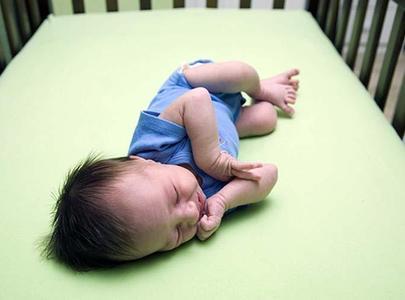A study by Maria Legerstee, a psychology professor who specializes in infancy and theory of the mind, shows that even at 3 months old, babies will kick and holler when mom's attention turns to someone else. And the behaviour, she says, is nothing to worry about. "It's a normal and appropriate reaction."
Legerstee's research is contrary to earlier developmental theories, which have suggested that jealousy and other "complex emotions" are synonymous with the "Terrible Twos" and first emerge during the second year of life.
"Jealousy is the fear of losing a beloved to someone else," Legerstee said in an interview yesterday. In the past 20 years, infant researchers have established that young babies know the difference between themselves and others, and that they form a social attachment to their mother or primary caregiver.
"These are preconditions for babies to feel jealous," she said.
Jealousy hasn't received much study and has mostly been looked at in the context of sibling rivalry, as a pathological emotion.
Legerstee's research will be included in the 2009 Handbook of Jealousy: Theories, Principles and Multidisciplinary Approaches.
The study, conducted in 2006, involved 45 babies ages 3 months and 6 months with their mothers on hand. When Legerstee interacted with the infants, she got smiles and coos. When she didn't respond to them, they appeared sad and looked away. But when she was busy taking a drink and didn't engage, they had no reaction, suggesting even infants sense motives that guide communicative behaviour.
But the last two scenarios surprised her the most. When Legerstee spoke to the mothers in a monologue, the babies didn't react much. But as soon as their mothers became engaged with her, talking and laughing and excluding them, they reacted strongly. "They got so upset, they would turn around in their seats and vocalize intensely and angrily," Legerstee said.
And what should parents make of this? If a baby shows signs of jealousy, try to interrupt your conversation and pay attention, she said.
"The baby gets fearful. You don't want to accentuate it, but you shouldn't worry about whether it's normal or not – it is."
